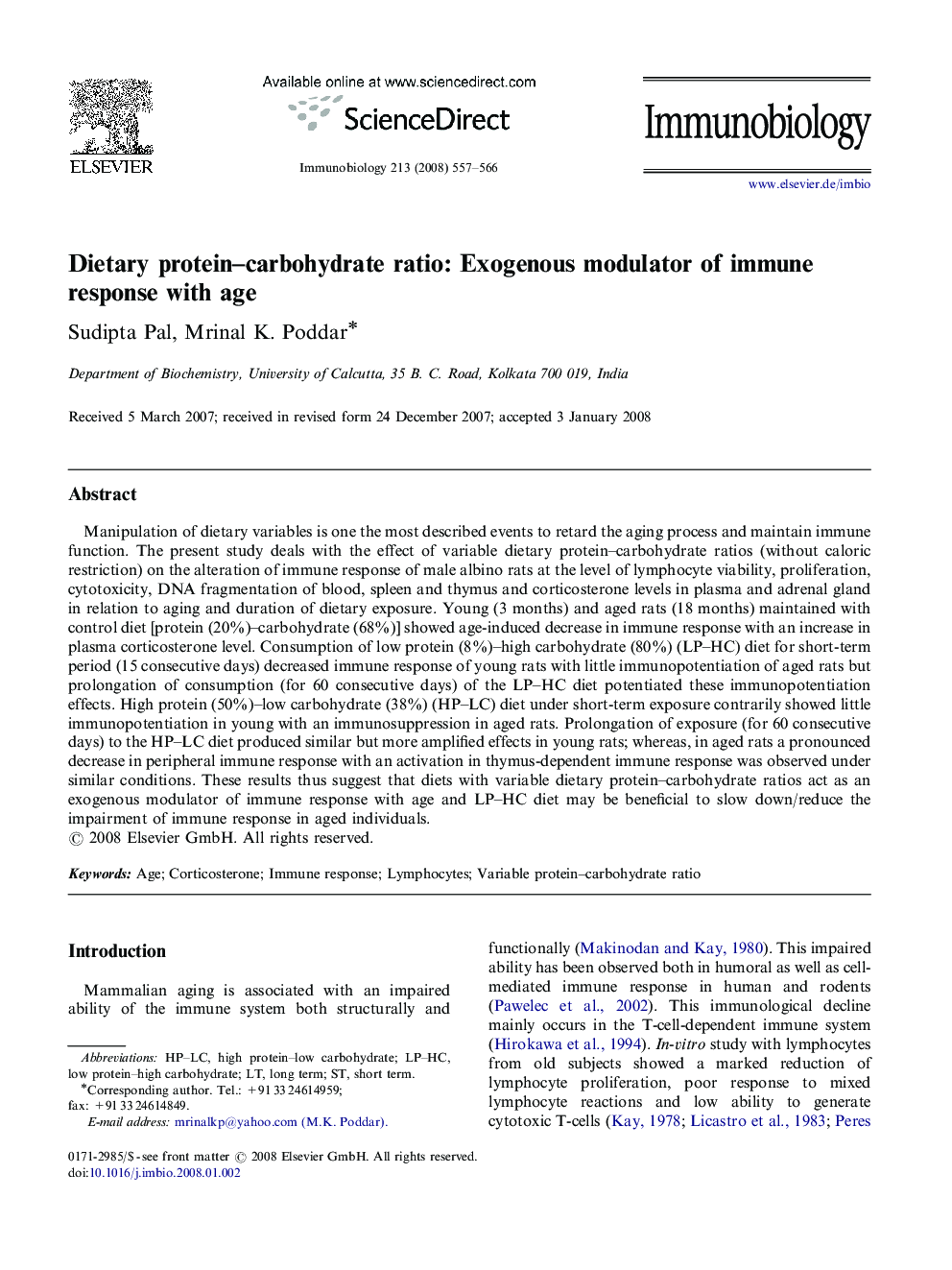| Article ID | Journal | Published Year | Pages | File Type |
|---|---|---|---|---|
| 2183720 | Immunobiology | 2008 | 10 Pages |
Abstract
Manipulation of dietary variables is one the most described events to retard the aging process and maintain immune function. The present study deals with the effect of variable dietary protein-carbohydrate ratios (without caloric restriction) on the alteration of immune response of male albino rats at the level of lymphocyte viability, proliferation, cytotoxicity, DNA fragmentation of blood, spleen and thymus and corticosterone levels in plasma and adrenal gland in relation to aging and duration of dietary exposure. Young (3 months) and aged rats (18 months) maintained with control diet [protein (20%)-carbohydrate (68%)] showed age-induced decrease in immune response with an increase in plasma corticosterone level. Consumption of low protein (8%)-high carbohydrate (80%) (LP-HC) diet for short-term period (15 consecutive days) decreased immune response of young rats with little immunopotentiation of aged rats but prolongation of consumption (for 60 consecutive days) of the LP-HC diet potentiated these immunopotentiation effects. High protein (50%)-low carbohydrate (38%) (HP-LC) diet under short-term exposure contrarily showed little immunopotentiation in young with an immunosuppression in aged rats. Prolongation of exposure (for 60 consecutive days) to the HP-LC diet produced similar but more amplified effects in young rats; whereas, in aged rats a pronounced decrease in peripheral immune response with an activation in thymus-dependent immune response was observed under similar conditions. These results thus suggest that diets with variable dietary protein-carbohydrate ratios act as an exogenous modulator of immune response with age and LP-HC diet may be beneficial to slow down/reduce the impairment of immune response in aged individuals.
Related Topics
Life Sciences
Biochemistry, Genetics and Molecular Biology
Cell Biology
Authors
Sudipta Pal, Mrinal K. Poddar,
